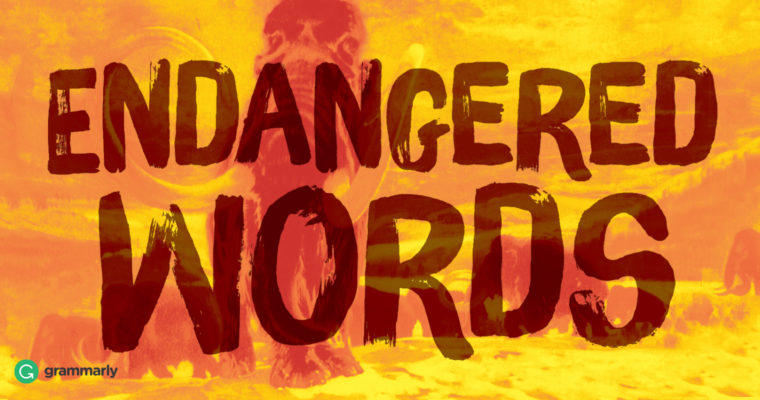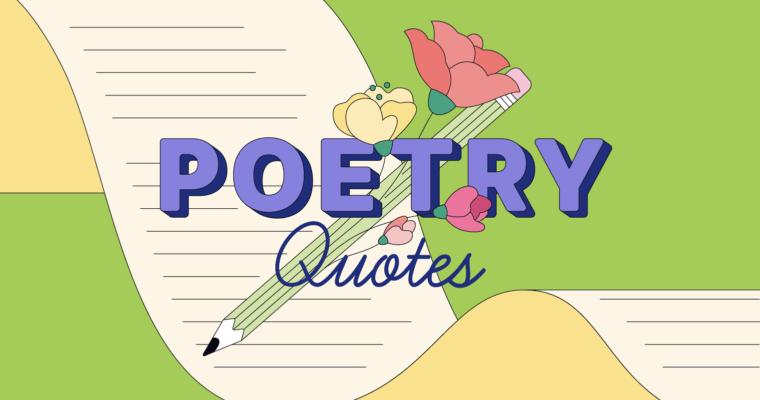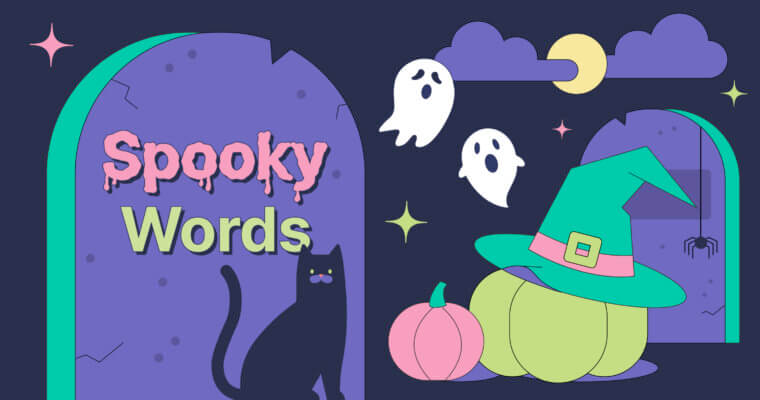
According to the U.S. Fish and Wildlife Service, endangered animal species are “in danger of extinction throughout all or a significant portion of [their] range.” Applying the same principle to words, endangered words are used less and less until almost no one knows them anymore. Are your favorite words in danger of extinction?
Ambrosial derives from ambrosia, the mythological food of the goods. Ambrosial describes things that are divine or of exceptional worth. It also means especially pleasant in taste or smell.
Coxcomb has a meaning that’s already extinct. It was an alternative spelling of cockscomb, the fleshy growth on the top of a rooster’s head. The word came to refer to the head or the crown (even of a human), but now that meaning is archaic. The only surviving meaning evolved from professional jesters who once wore caps that resembled cockscombs. Today, a coxcomb is a conceited, foolish, or pretentious man who concerns himself too much with his looks and manners. With one obsolete meaning and one archaic one already under its belt, is coxcomb likely to survive?
Dirty could go “the way of the dodo” within 750 years, according to The Guardian. Researchers from Reading University predicted its extinction by applying the theory of evolution through natural selection. Mark Pagel, the biologist who led the research team, says that dirty is in danger because its evolution was the most rapid of all the words they studied.
Fishwives are almost exactly what they sound like—women who sell fish. In the past, the word wife could refer to any woman, married or unmarried. A second meaning of fishwife is a woman who has coarse manners or uses vulgar language.
Hark was once much more popular than it is now. The meaning “listen” or “hear” is now archaic. If you hear hark nowadays, it might be a hunter encouraging his hounds to follow a scent.
Whom is a pronoun that functions as the dative or objective case of who. People are becoming increasingly likely to use who instead of whom.
Why Words Become Endangered
Many times words seem to go extinct without rhyme or reason. However, sometimes there does seem to be a cause. For example, many people simply think that whom’s usage rules are too difficult to master. Others think that, perhaps because their usage is declining, words like whom and coxcomb sound pretentious. Other words fall into disuse because of their potential for causing offense. For example, fishwife can be offensive for two reasons. First, wife means a married woman in modern English, so it would be strange to call a single woman a wife. Secondly, the tendency of society these days is to use gender-neutral vocabulary. Many prefer fish seller or even fishmonger.
When an animal is endangered, people often take steps to save it. What do you think about the words on this list? Are they worth saving?






